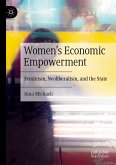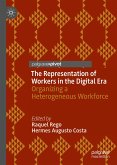In an ever-changing working environment, customer and workplace demands have brought new challenges to how we organize and manage work. Increasingly, this is addressed by the idea of 'agility.' From its beginning, agile work has claimed to be a radically different approach which allows organisations to react flexibly to changing environmental demands whilst also offering a 'people' centered approach to management.
Sabine Pfeiffer holds the Chair of Sociology, Nuremberg Campus of Technology, Friedrich-Alexander-Universität Erlangen- Nürnberg, Germany.
Manuel Nicklich works at the Chair of Sociology, Nuremberg Campus of Technology, Friedrich-Alexander-Universität Erlangen-Nürnberg, Germany.
Stefan Sauer works at the Chair of Sociology, Nuremberg Campus of Technology, Friedrich-Alexander-Universität Erlangen- Nürnberg, Germany.
Dieser Download kann aus rechtlichen Gründen nur mit Rechnungsadresse in A, B, BG, CY, CZ, D, DK, EW, E, FIN, F, GR, HR, H, IRL, I, LT, L, LR, M, NL, PL, P, R, S, SLO, SK ausgeliefert werden.









